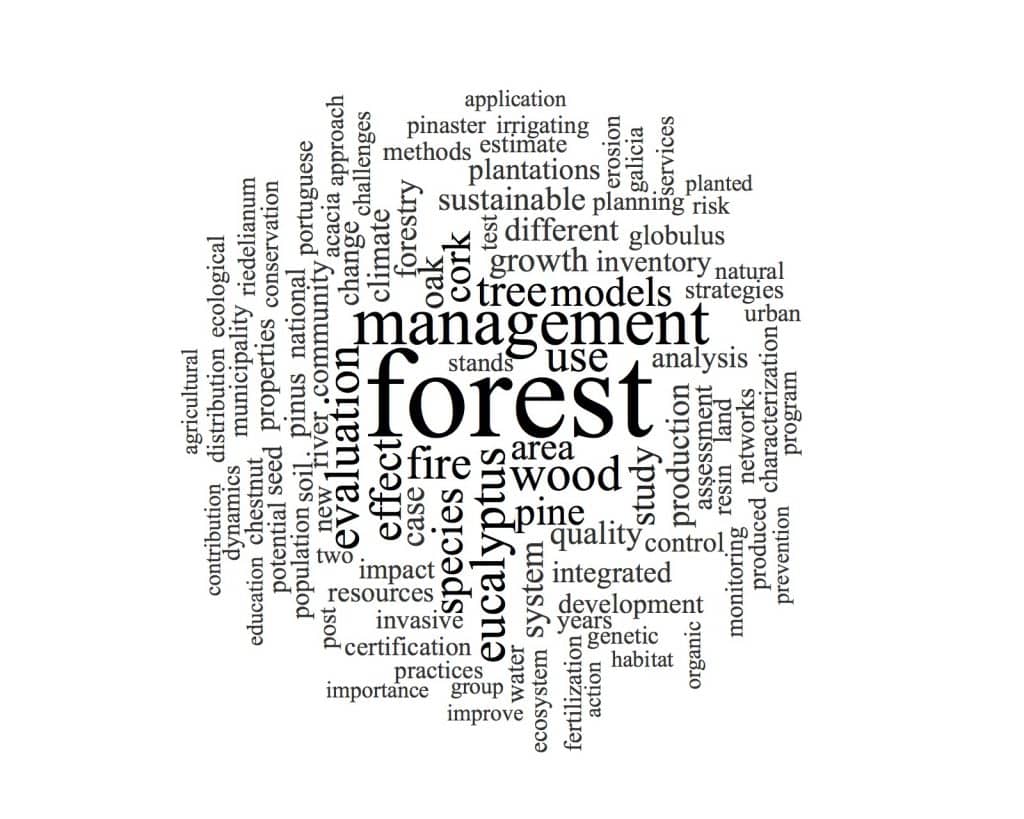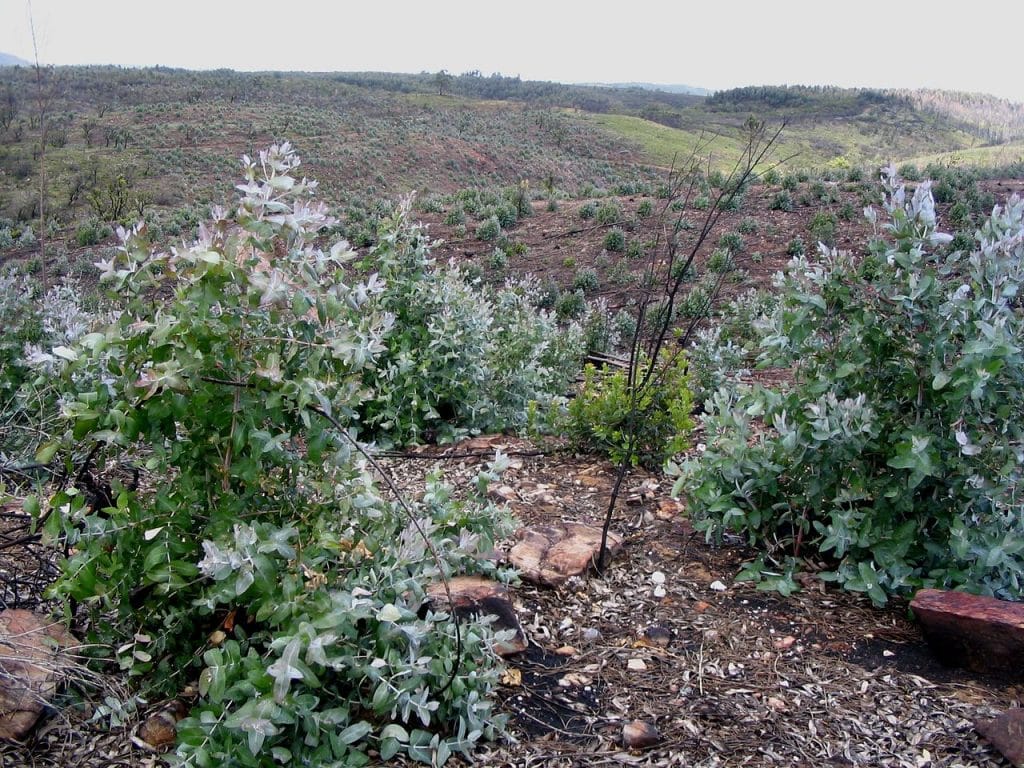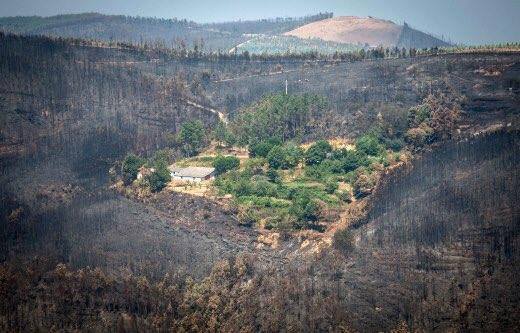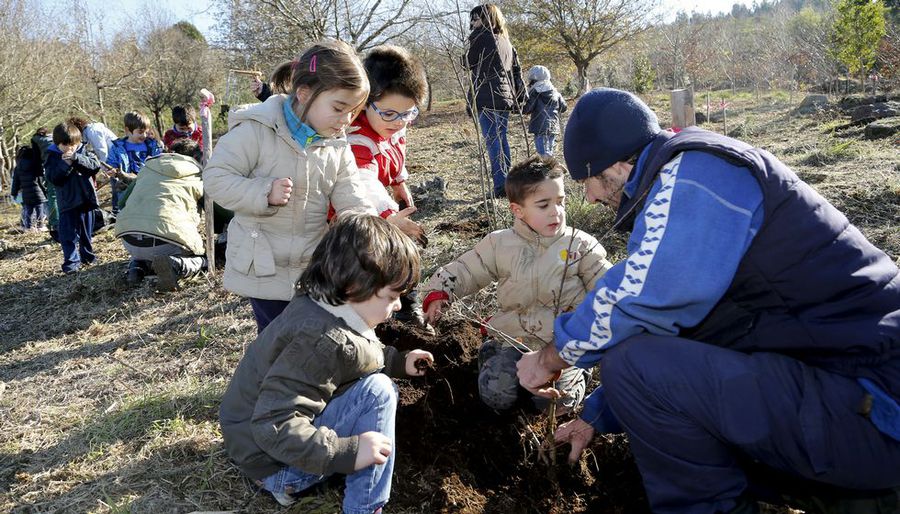
Last Sunday, Portugal was breathing smoke again. Travelling back from a weekend in Guimarães we saw the sun changing its colour. First we thought: beautiful! Then, we started crossing all these fires on our way back to Aveiro. With the ash, the smoke and a landscape full of flames, we could only think: how can this happen? And most important, what should be done to stop it? While being aware that most probably these fires were criminal acts or caused by negligence, I want to go beyond this debate and to try to answer these two questions giving emphasis to the impact of discourses on forest politics in Portugal- as informed by my participation in the Portuguese National Forest Congress (8-11 October 2017).
How can this happen?
The power of discourses
Last week I assisted in the Portuguese National Forest Congress, this year tackling the theme: Forest in Portuguese, roots for the future. After one day of congress, I was impressed by the fact that the so called “roots for the future” were, in most talks, forest products and new or improved forest markets…So, in most cases the solution of fires was to improve productivity and markets for forest. These discourses suggested that only with these kind of monetary incentives, forest owners could have will enough to manage them and prevent fires. This argument may be true for “tree plantations”, but it does not apply if we talk about forest ecosystems.Indeed, most talks called “forests” what were in fact “intensive tree plantations”. In my view, this is a huge misunderstanding- or even a political action- that is reinforcing the current status quo (see image below).

If we consider tree plantations as forests, reforestation works done after logging can be tagged as environmentally friendly, for example, for climate change mitigation. Yet, these tree plantations do not benefit at all the environment. At the end, most of the net income coming Eucalyptus exploitation benefit the paper pulp industry sector, while communities deal with the risks and environmental impacts of them. Unfortunately, during last decades many Eucalyptus reforestation works have been financed by European funds! (Veiras and Soto, 2011)

Forests vs. tree plantations

As Isabel Fernández del Castillo pointed out in her recent blog about the catastrophic fire of Pedrogão this summer (see her post here), the distinction between forest and tree plantation is key for understanding the deleterious effects of forest fires in Portugal. I summarize here her main points:
- The problem of forest fires is not only the lack of forest management caused by a lack of monetary incentives of land holders and the subsequent biomass accumulation. When the ecosystem is healthy and biodiverse, the herbivores and detritivores can live there and eat/degrade this biomass (what is not happening in tree plantations). In addition, planting Eucalyptus or Maritime Pine makes fires stronger as they are by nature very inflammable (see image below).
- Reforestation policies (many financed by the EU funds) have focused solely on planting trees (mostly Pines or Eucalyptus) not on recovering forests. Pines are a native pioneer species in many areas in Portugal, key for recover degraded areas, for example after fires. Yet, policies don’t go beyond the forestation works which hinders ecological succession.
- Forests as ecosystems are mosaics of different trees species. Nowadays, Portuguese native species as oak trees and chestnuts are rare, and many “forests” are mono-specific. Interventions have ignored the fact that the more a forest is biodiverse the more resilient and productive it is- productive understood not as potential commodities for human consumption but as the whole range of services necessary for humans and non-humans (inhabitants of forests, soil, climate, etc.).
What can we do to stop it?
The challenge is then to recover forests ecosystems replacing the current tree plantations. Nature will itself take care of and “clean” forests if its ecosystem nature is preserved. We need, as a generation, to accept that we don’t have forests anymore so it is our turn to regenerate them without any extractive vision within our life-span. We need to leave nature do its work while helping the process- e.g. clearing exotic species and planting diverse native trees.

There are already some projects in Portugal and Galicia (Northwest Spain) doing this, which gives hope, but are still very few (see Movimento Gaio, Cabeço Santo, my case-study in Galicia, Spain – Teis commonland).
Even if these projects work in a very small scale and in terms of surface are not significant, I see them as seeds for changing discourses about what forest truly are and for showing the underlying problems of treating nature as an enterprise.
But still, there is an open question: who is responsible for leading this change? In a context of rural depopulation and after the dismantling of the traditional agricultural economy in which forest were key for communities’ survival, we need to re-think ways by which we can re-embed forests in community life again. This question will be discussed in an upcoming post!
References
Veiras, X., Soto, M.A., 2011. La conflictividad de las plantaciones de eucalipto en España (y Portugal) 96.
